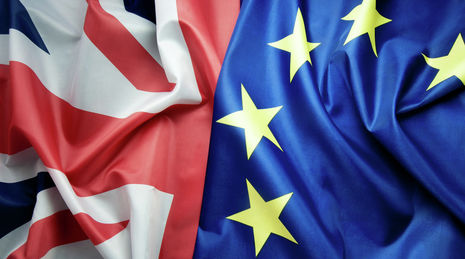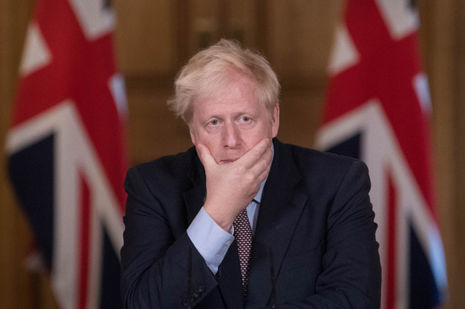The Road to Isolation – Boris’s Internal Market Bill
Lara Brown warns that Britain risks its international legitimacy by backtracking on the Internal Market Bill, adding to the chaos of an already uncertain future.

The 12th of December 2019 was a day of jubilation for the Conservative Party. It is rare for parties in their tenth year of government to be in such a strong position; Boris Johnson, whose first months in Downing Street were defined by instability and chaos, surely felt overwhelmingly relieved to be the Prime Minister commanding the biggest parliamentary majority since 2005.
To what should we attribute his historic victory? One factor prevailed: Johnson’s ‘oven-ready’ Brexit deal. It was the Brexit election; Brexit was the ground on which Johnson wanted to fight, and it was the ground on which he won. Johnson had moved his way out of the quagmire by appealing to Leavers in the Red Wall, and to Remainers fed up with Brexit dominating their newsfeeds. Johnson’s biggest achievement was a deal that proved palatable to the majority of the British public, a deal that now lies in tatters.
On the 9th September, the Prime Minister told us that he had no choice but to throw out the Protocol and to break international law by defying the Withdrawal Agreement.
Johnson threw out the backstop and replaced it with the Northern Ireland Protocol, a supposedly “great deal”. And yet, on the 9th September, the Prime Minister told us that he had no choice but to throw out the Protocol and to break international law by defying the Withdrawal Agreement. The deal for Northern Ireland was no longer “great” but “terrible”. The Internal Market Bill was tabled.
After Brexit, Northern Ireland will not be required to follow EU regulations. With this, the question will arise as to how the EU can maintain free movement in Ireland and avoid the erection of a hard border. The Irish border is currently entirely open. This is not only politically crucial – the dismantling of militarised border points was a key requirement of the Good Friday Agreement – but also a logistical necessity, as the border straddles many houses and farms.
There are currently no countries bordering the EU where customs checks have been eliminated. The Protocol agreed that all Northern Irish goods must conform to some EU rules, allowing products to move freely into the republic. There would therefore be customs checks on the border between Great Britain and Ireland. The proposed rules would allow Northern Ireland to remain part of both UK customs territory and the customs union (subjecting them to around 200 EU product regulations).
This seemed elegant in 2019, but now Johnson condemns it. He claims the EU is attempting to “leverage the Northern Ireland Protocol” , threatening to ban the sale of UK agri-foods anywhere in the EU and therefore creating a food blockade between the UK and Northern Ireland. The trouble is that the Internal Market Bill does not prevent a food blockade in Northern Ireland, as Ed Miliband highlighted, “This bill does precisely nothing to address the transport of food from Great Britain to Northern Ireland”. He requested that the Prime Minister point to the part of the Bill which will protect Northern Ireland, but was met with silence. Theresa May, who has been very reticent to criticise her successor, described Jonson as acting “recklessly and irresponsibly” putting the UK at risk of “untold damage”; Blair and Major have called the legislations “shameful” and “embarrassing”.

Johnson has forced a bill through Parliament without any explanation of how it will help Northern Ireland. When reading from the government script, The Secretary of State for Northern Ireland, Brandon Lewis, offered a measly defence of the bill, asserting that it breaks international law only in a “specific and limited way”. The draft legislation currently states that ministers might “disapply” previously agreed-upon rules on the movement of goods. It also allows ministers to provide financial assistance to any person or company, overriding EU state aid laws. State aid is defined as any use of taxpayer funds which gives certain organisations advantages over others and thus distorts competition and trade laws.
By breaking state aid laws, we put the EU at risk of having their markets flooded with Northern Irish goods which have benefited from State Aid. The EU have stated that in violating the Withdrawal Agreement, the UK will “break international law, undermine trust and put at risk the ongoing future relationship negotiations”. If the bill is implemented, the EU will face a choice between allowing the single market to be compromised, or taking steps to secure their frontiers by erecting a hard border. Mick Mulvaney, Donald Trump’s special envoy to Northern Ireland, has already identified the risk of creating a hard “border by accident”.
In the wake of Johnson’s mismanagement, it now seems that we will begin these negotiations with a reputation as a government with no regard for legality.
When Michael Howard spoke against the Internal Market Bill in the House of Lords, he focused on one particular aspect: that in breaking international law, even in a “specific and limited way”, the United Kingdom would cause irreparable damage to its reputation. “How can we reproach Russia, or China, or Iran when their conduct falls below internationally accepted standards when we are showing such scant regard for our treaty obligations?” In the aftermath of Brexit, Britain needs to negotiate every one of the trade deals it profited from when in the EU. However, in the wake of Johnson’s mismanagement, it now seems that we will begin these negotiations with a reputation as a government with no regard for legality, which also gladly renegades on its commitments.
The current state of national affairs seems even worse than if we had simply left with no deal this time last year.
The bill raises an array of additional problems. Aside from reigniting tensions in Northern Ireland, it also threatens relations with America. Whoever wins the White House in November, the House of Representatives is unlikely to flip, and Nancy Pelosi is clear that House Democrats will obstruct all mooted free trade deals with the UK if Johnson reneges on his commitments to the EU and to peace in Ireland. The EU will likewise be reluctant to cooperate with the UK once we have a reputation for breaking international law. The current state of national affairs seems even worse than if we had simply left with no deal this time last year. Since then, we have made commitments which we simply cannot adhere to. No surprise that five former prime ministers have joined 30 Conservative MPs in objecting to the Internal Market Bill
 News / Cambridge academics sign open letter criticising research funding changes22 February 2026
News / Cambridge academics sign open letter criticising research funding changes22 February 2026 News / Supporters protest potential vet school closure22 February 2026
News / Supporters protest potential vet school closure22 February 2026 News / University Council rescinds University Centre membership20 February 2026
News / University Council rescinds University Centre membership20 February 2026 News / Hundreds of Cambridge academics demand vote on fate of vet course20 February 2026
News / Hundreds of Cambridge academics demand vote on fate of vet course20 February 2026 Comment / A tongue-in-cheek petition for gowned exams at Cambridge 21 February 2026
Comment / A tongue-in-cheek petition for gowned exams at Cambridge 21 February 2026









